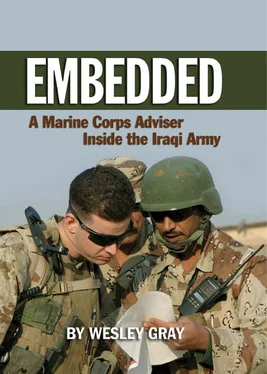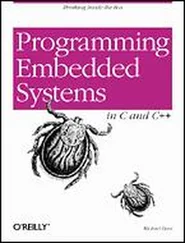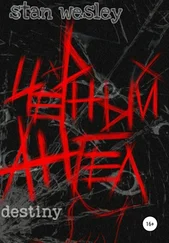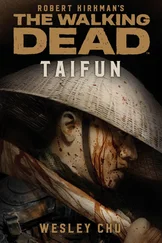“Gray, we bought the entire thing!” Adams exclaimed proudly as he approached the Humvee. I was not involved in the conversation, but from the looks of it, Adams had managed to buy the entire marketplace. Every shop had a Leyland backed up to it and four jundi loading sacks of rice, bags of potatoes, and various other food sacks. Bravo! (See photo 13.)
After emptying the Barwana market we marched the convoy back to the Barwana FOB. As we were moving out of the market a young boy waved and offered us some Pepsi. His father sat back and watched approvingly as his son handed us four sodas, expecting nothing in return. Adams graciously gave him a five-dollar bill. I waved at the kid from my turret and said, “Shukran jazeelan” (Thank you very much). He returned my wave and smiled. I think we may have won one heart and mind today. Of course, we also may have been bamboozled into paying five dollars for four Pepsis; we will never know for sure.
Chapter 9
Iraqi Payday Operations
September 2006
At their core Iraqi soldiers are not much different from U.S. Marines. If you do not feed or do not pay a Marine, do not expect him to accomplish anything. This same holds for the jundi . Fortunately for Marines, getting chow and pay are rarely problems in a world of computers, laws, and honest people. The situation in Iraq is a lot different.
The Iraqi pay system is broken but improving. As the Marine in charge of overseeing Iraqi pay operations, I wished I’d had the power to fix the whole system. But this wasn’t possible. I couldn’t create a banking system in Iraq, eradicate extortion and violent robbery, and eliminate corruption in Iraqi society. All I really could do was be the focal point for the jundi for all their complaints regarding pay. I also could see to it that their pay processes at the battalion level were fair and just and that I reported all discrepancies to the next higher level unit. What happened beyond battalion level I had no control over.
Payday was approaching and it was obvious. Nearly every jundi in the battalion had confronted me with pay issues. The pay system was counterproductive to the Iraqi army’s future. The more the jundi relied on Marines for solving their problems, the longer Marines had to stay in Iraq. I had told the jundi multiple times that they needed to consolidate all their pay issues and give them to the Iraqi battalion S-1. The battalion S-1 would then send the pay discrepancy report to the Iraqi brigade, which would send it to the Iraqi division, which would eventually send it to the MOD, where all pay issues would be resolved.
Every time I told Iraqis to talk to their Iraqi leadership to solve their problems, they looked at me weirdly. And I got the same general response: “Jamal, Iraqi officers are Ali Babba. Colonel Abass is Ali Babba, General Bassam [Iraqi brigade commander] is Ali Babba, MOD is full of Ali Babba, and everyone else in Iraqi is Ali Babbas. Are you kidding me? You are the only person we can trust!”
I understood the Iraqi perspective. They had lived in a harsh environment with limited resources, had been inculcated by tribal culture, and were used to operating within Saddam Hussein’s corrupt regime. It was no wonder they only trusted people with whom they had a personal relationship.
Iraqi payday began. A reckless convoy of unfamiliar Iraqis came crashing through Camp Ali. This “convoy of chaos” was the jundi from the Iraqi brigade based in Al Asad. When the dust finally settled, Colonel Abass and the other Iraqi officers greeted the brigade officers as though they had not seen them in many years (it had been less than a week). I waited thirty minutes as the Iraqis hugged, kissed, and reminisced about days of old.
“Tseen, Jamal is the new MiTT pay officer. He is over there.” Colonel Abass directed Captain Tseen, the Iraqi pay officer, in my direction. Tseen, obese and just a few pounds from claiming the title of “fattest Iraqi officer” from Abass, waddled his way to me with open arms and a wide smile. He bear-hugged me, kissed me on both cheeks, and shook my hand. “Jamal, I heard you are a very good man, how are you? How is your family?” I responded with a firm handshake and a firm bear hug. “Tseen,” I said, “I am quite well. I hear you are the best pay officer in Iraq? I am happy to hear you arrived safely.”
Captain Tseen ordered a few of the jundi on guard to grab his gear from the Iraqi Humvee. It took me a minute to realize that the large hay bales the jundi were struggling to take from the Humvee were not Tseen’s luggage, they were 350,243,100 dinar (roughly $250,000). Inflation had not only broken the Iraqi economy but also the backs of these poor jundi carrying the cash. The next step was to count the money. We entered Colonel Abass’s hooch to secure the money in his safe, the only secure environment on Camp Ali. I say “secure” in the sense the safe was fireproof and under lock and key; however, the fact that Colonel Abass had access to this safe was not reassuring.
Tseen grabbed the 100,000-dinar wads of cash from his assistant’s hands and counted them. “100,000 dinar, 200,000 dinar, 300,000 dinar.” I verified with the MOD roster that the amount of money arriving to our camp was the amount we should be receiving. Amazingly, we had exactly 350,243,100 dinar. We locked the safe. Tseen said, “Jamal, it is now time for tea. Come with me.” I obliged and we went to drink tea with a group of Iraqi officers in the battalion swahut.
Our first pay operation was to pay the Headquarters and Service Company (H&S Company) Iraqi soldiers who resided at Camp Ali. We set up shop in Captain Hasen’s swahut, which was in the center of the jundi swahut area. To the untrained eye it seemed as though the jundi payday scene was absolute chaos. The jundi were simultaneously excited and stressed. They yelled and fought with each other to get a favorable position in the line. They relied on the paychecks to survive and to feed their families. No paycheck meant an Iraqi could not take care of his family, a dishonorable position in the Arab world.
There were seven individuals involved in the management of the pay process. Sergeant Major Kasem, the senior enlisted Iraqi in H&S Company, stood at the door to the swahut and asked for three identification (ID) cards at a time; he acted like the bouncer outside a club. He continually yelled at the pay line, which consisted of anywhere from fifty to a hundred Iraqis, all of whom were trying to push their way to the front of the line.
Inside the swahut Tseen and I set up a long table with six chairs behind it. The Iraqis receiving pay started at chair one and moved down the line. The first and second chairs were for me and a terp, usually Imus, Mark, or Moody—the most honest terps. While I rarely used a terp, during pay operations I relied on them heavily to give me the honest scoop. Pay operations were notorious for various kinds of shady business, which my basic Arabic skills might not have caught (for example, officers paying favorite soldiers more money, stealing soldiers’ pay, forging signatures on the pay charts, and so forth). Sadly, I had no real function at the table except to monitor the process and assure the jundi that the Iraqi officers would not engage in nefarious activity. No matter how much Iraqis publicly claimed that Americans are dishonest, stingy, and generally rotten people, in private situations, they relied on us heavily to provide oversight.
The third chair was for Naji, an S-1 warrant officer with over twenty years in the old Iraqi army who is respected throughout the battalion. Naji’s duty was to verify IDs, verify names, and keep a written record of payment for the battalion’s pay records. Iraqis love to keep paper records of everything. Their record-keeping ability is old fashioned and inefficient but functional. Next to Naji sat Tseen. Tseen read names and pay amounts from the official pay rosters from MOD. When the pay recipient verified that his name was correct, he signed on the official MOD pay rosters. Tseen also acted as an impact zone for jundi complaints, bearing the full brunt of every emotional jundi who found out he had a pay issue—a sight women and children should never have to witness.
Читать дальше












